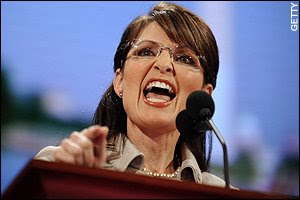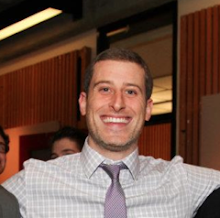
Best response I have read so far...
Over the past week, Palin had begun looking like a character from Twin Peaks. Tonight, she looked like an up-and-coming Republican politician. It was an auspicious debut, the sort of address that would be judged a success if she were a newcomer keynoting the convention. She landed clean punches, temporarily silenced some of her critics, and retold John McCain's story with a keen sense for the drama of his experience. But I expected more. As delivered, the speech was effective as theater but curiously hollow as an enduring campaign argument: It contained the seeds of a medal ceremony for McCain, and marked Palin as a politician to watch, but it said nothing about the presidency she hopes to be part of.From Ezra Klein
An early example came in the halfhearted attempt to redefine Sarah Palin. No one doubts that things have happened in Alaska over the past 18 months, and Palin has been involved in some of them. But I wasn't quite expecting them to cede the 42 years before she assumed the governorship.
The crucial juncture came early in the speech. They had the opening to weave a narrative around her preparation for the vice presidency, and decided instead to throw it away on a jab against Barack Obama. "I was mayor of my hometown," she said. "And since our opponents in this presidential election seem to look down on that experience, let me explain to them what the job involves. I guess a small-town mayor is sort of like a 'community organizer,' except that you have actual responsibilities."
Good line. But no responsibilities followed. Instead we heard about Obama's characterization of economically depressed Americans as "bitter." Another straight shot, but a missed opportunity. Palin could have taken the moment to define her mayoralty as an education in the concerns of small town Americans, or an experience leading to the realization that government works best when it is closest. Instead, she essentially agreed with her critics: Her experience amounts to 18 months as governor of one of the smallest states. Tonight, she put the best spin on that experience, but she didn't challenge its basic shape or limitations. She chose the applause line, not the deeper argument. In that sense, the speech was slave to the same priorities that governed her selection as vice president: It was aimed at wining the news cycle, not the campaign.
Again and again, strong narratives were sacrificed for good lines. Later, Palin set forth a powerful contrast when she said, "Among politicians, there is the idealism of high-flown speechmaking, in which crowds are stirringly summoned to support great things. And then there is the idealism of those leaders, like John McCain, who actually do great things. They're the ones who are good for more than talk." Again, a clean shot landed on Obama, but I listened for the "great things" John McCain would do to no avail. I went back to the transcript. "It's a long way from the fear and pain and squalor of a six-by-four cell in Hanoi to the Oval Office," Palin said a few paragraphs later.
Nowhere did we hear of the great things John McCain would do, Instead, we heard, over and over, of the agonies John McCain endured. The presidency was presented tonight as if it were the Medal of Honor, or a purple heart. As if it is only a quirk of our political process that stops us from simply finding the longest serving prisoner of war and gifting him the keys to the office. On a rhetorical level, it was effective, if only because McCain's story is so powerful. But it is not, fundamentally, a sustainable approach to this campaign. If McCain is more appealing for what he did than what he will do, he will lose the election. It is, after all, only during the convention that you get to tell your story. Throughout the rest of the campaign, you have to argue with your opponent. And tonight, Palin added very little to that argument.

No comments:
Post a Comment